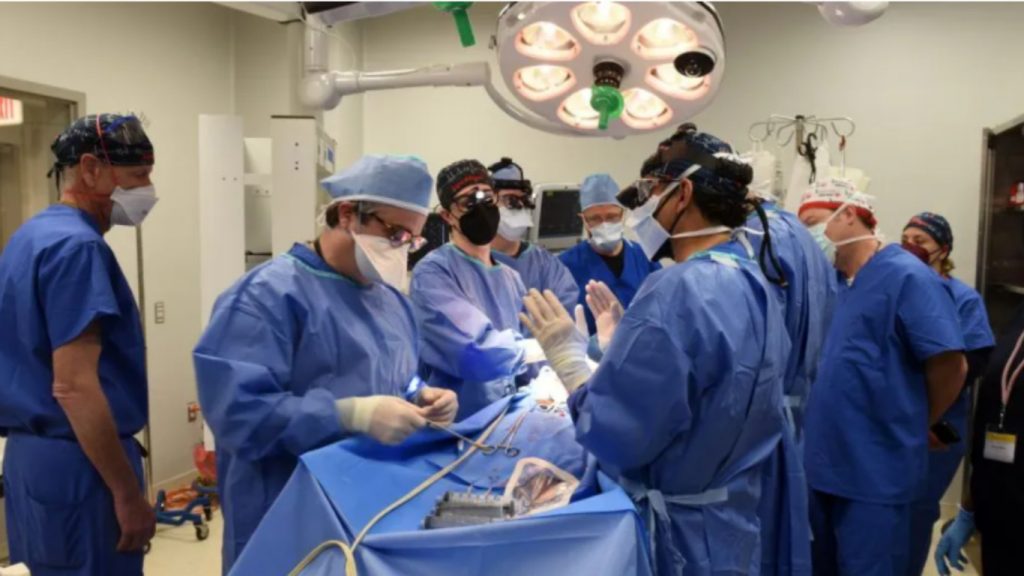Doctors in the U.S have just performed an unprecedented medical procedure and people are in awe. The American surgeons have transplanted a genetically modified pig heart into a living human. The patient is currently still alive, has not rejected the pig organ, and is being intently monitored at the University of Maryland Medical Center.
It is a collective win for scientists that have been working on it from all over the world and for tens of years. The main work was of gene editing that enabled the development of pig organs that were not rejected by a human immune system.
The genetically modified pig heart used in the transplant was supplied by regenerative medicine company Revivicor and came from a pig that had been engineered with around 10 genetic modifications. All of the modifications focused on reducing the chances of rejection from a human immune system.
The patient was a 57-year-old man with terminal heart disease named David Bennett. This treatment was offered to him as a last resort.
“It was either die or do this transplant,” Bennett said before the surgery. “I want to live. I know it’s a shot in the dark, but it’s my last choice.”
After much consideration, the US Food and Drug Administration (FDA) authorized the surgery as part of a compassionate use provision allowing for experimental treatments in patients with life-threatening conditions.
“This is the culmination of years of highly complicated research to hone this technique in animals with survival times that have reached beyond nine months,” explains Muhammad Mohiuddin, from the Cardiac Xenotransplantation Program at the University of Maryland School of Medicine.
“The FDA used our data and data on the experimental pig to authorize the transplant in an end-stage heart disease patient who had no other treatment options. The successful procedure provided valuable information to help the medical community improve this potentially life-saving method in future patients.”
The surgery preceded multiple successful preclinical studies about transplanting genetically modified pig organs into baboons. Two major experiments last year explored human responses to the organs.
The two transplants last year, by researchers from NYU Langone, were performed in functionally dead patients who were kept alive on ventilators for several days.
Bartley Griffith, the surgeon who performed this historic procedure, is cautiously optimistic about his patient’s prospects.
“This was a breakthrough surgery and brings us one step closer to solving the organ shortage crisis,” says Griffith. “There are simply not enough donor human hearts available to meet the long list of potential recipients. We are proceeding cautiously, but we are also optimistic that this first-in-the-world surgery will provide an important new option for patients in the future.”

